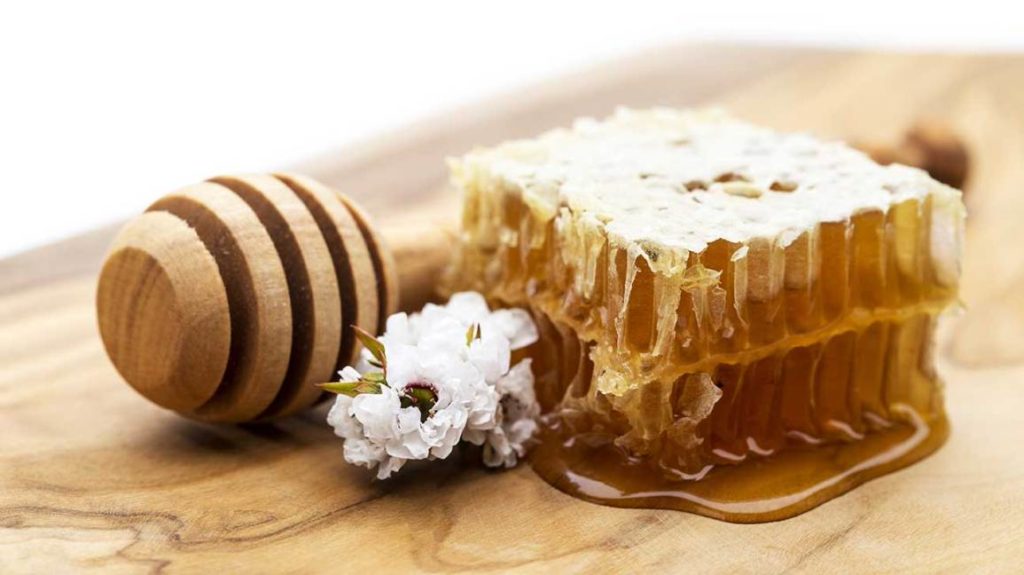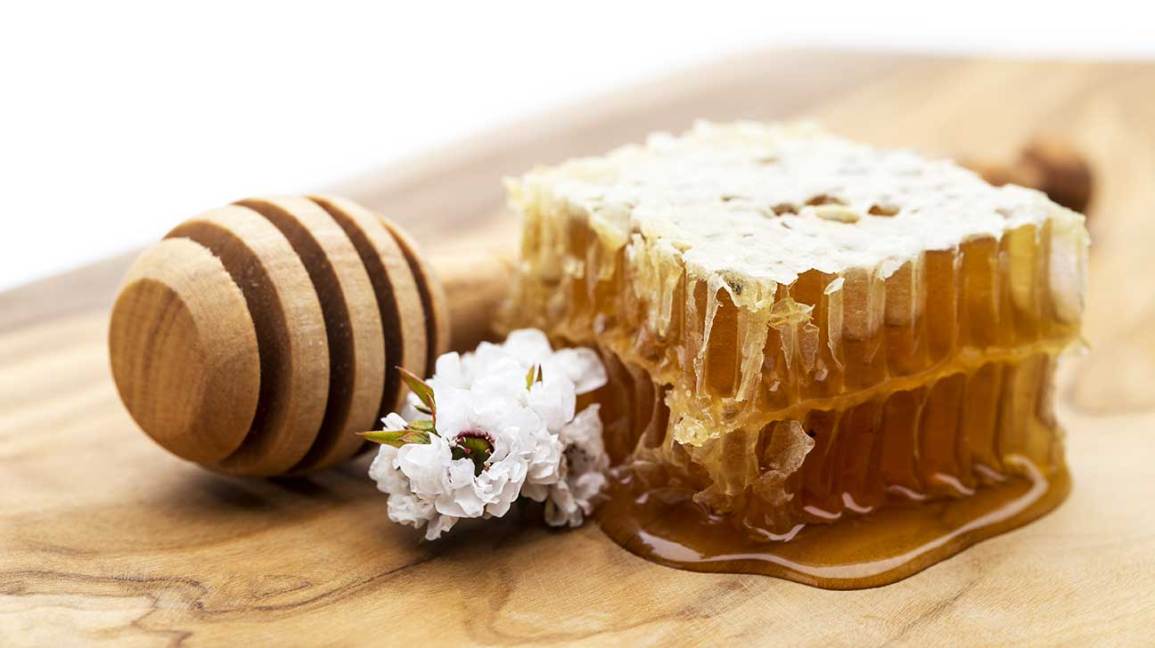
What is Manuka Honey?
You have probably seen manuka honey in stores and think why it is pricier compared to other types of honey. This is because of the different factors that affect the processing of this product.
Manuka honey is so-called because it is the honey produced by the bees that pollinate the Manuka plant. However, these flowers are native to New Zealand. And not to mention, they only bloom once a year, and accessing the areas where they grow would require a helicopter ride.
So why do people exert so much effort to collect this type of honey? And is the cost worth it? It is safe to say that the effort and money are worth it. Simply because manuka honey offers different health benefits that it is even worthy of being dubbed as “medicinal honey.”
What Makes Manuka Honey Different From Regular Honey?
Honey is known for its wound healing properties because of its hydrogen peroxide content. On the other hand, manuka honey has a distinctive characteristic that the UMF Honey Association in New Zealand created a rating system called the UMF Factor.
UMF or Unique Manuka Factor is a scale that you’ll see among different brands of manuka honey. As you can see in this guide, knowing the UMF rating of a product will give you a gist on its antibiotic strength. The higher the grade is, the stronger and more beneficial the honey is.
Because of having unique antibacterial compounds like MGO (methylglyoxal), manuka honey can aid in a variety of health concerns such as infections, wounds, inflammation, sore throat, digestive problems, and even with oral conditions like gingivitis.
Compared to other types of honey, manuka is so versatile that you can eat it on its own, add it to food and drinks, or apply it directly to the skin. All of which will let you take advantage of its benefits to improve your health or relieve symptoms.
Now, you might be thinking of how one can consume and eat manuka honey. After all, if something as delicious as honey can be great for our health, why would we not take advantage of it? Well, the good news is that manuka honey is also as delicious as regular honey. Its flavor may not be as sweet and as familiar as typical store-bought honey, but it is just as good.
Both sweet tooths and non-sweet tooths will surely appreciate the earthy, slightly sweet taste of manuka honey. It is also thicker in consistency and not as smooth compared to other types of honey.
Take it as a Supplement
If you feel yourself craving for something sweet, you can curb this with having a tablespoon of manuka honey on its own. You can also take it before a meal or every meal (i.e., twice a day), and because it’s not too sweet, it doesn’t feel irritating on the throat.
Think of this tablespoon as a supplement to improve your digestive health and even help with other discomforts such as sore throat. For the latter, it might also be more soothing to create a solution of 240 ml of warm water, some lemon juice, and 5 to 10 ml of manuka honey. This also works great for those with cold to alleviate the discomfort.
However, be aware of how much honey you’re consuming every day because it is still sugar. If you have an illness such as diabetes, you should always consult with your doctor first to make sure you have your blood sugar levels monitored.
To give you an idea of what manuka honey is the best for your health, opt for those with a UMF rating of 16 or even higher. This way, you’ll know that they have a high amount of active compounds that can help in fending off infection and other nasty microbes.
Use it as a Healthier Sweetener Alternative
According to Diligent Chef’s website, you can also use manuka honey as an alternative to sugar in your daily recipes. For example, why not start the day with a healthier french toast drizzled with some honey or use it as a flavor enhancer for your porridge.
Manuka honey also makes a tasty salad dressing. Imagine making your salad a tad healthier while also enhancing its taste. Because of the honey’s unique flavor, you can make a lot of combinations or do something simple with white wine vinegar and olive oil. You can also experiment with other types of oils and vinegar such as balsamic vinegar and sesame oil.
Overall, you can easily use manuka honey as a flavor enhancer along with various herbs for your other savory recipes.
And if you’ve been craving for pastries and baked goods, you can also use a small amount of manuka honey. Because it is stronger compared to ordinary sugar, you don’t have to use as much to make delicious cookies and muffins.
Improve Your Digestion by Drinking Sweetened Beverages
Manuka honey improves your gut health because it has probiotics to help the good bacteria. But not only that, because manuka honey can also attack the harmful bacteria and even reduce inflammation to relieve conditions like colitis. There are also studies that showed how manuka honey could alleviate symptoms associated with inflammatory bowel disease such as diarrhea and digestion.
Manuka honey with lemon juice and warm water is not the only beverage you can make to improve your health and alleviate some discomfort from symptoms like cold and sore throat. You can also use it as a sweetener on warm milk or chamomile tea before bedtime to help you relax at night. At the same time, manuka honey also tastes great with tea or smoothie to add some sweetness to it without the dreaded calories.
You can also make honey lemonade with 240 ml of water, 30 ml of lemon juice, and 1 or 2 teaspoons of manuka honey. If you are suffering from indigestion, you can use manuka honey as a sweetener for peppermint tea. However, manuka honey is thicker compared to syrups, so expect some time mixing it in to get it fully dissolved. And of course, don’t use manuka honey with hot and boiling beverages so that you won’t destroy its healthy components.
